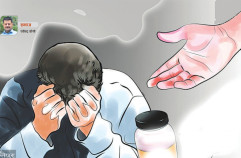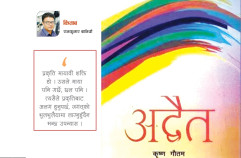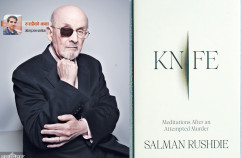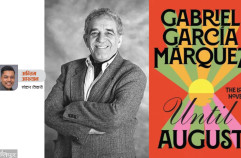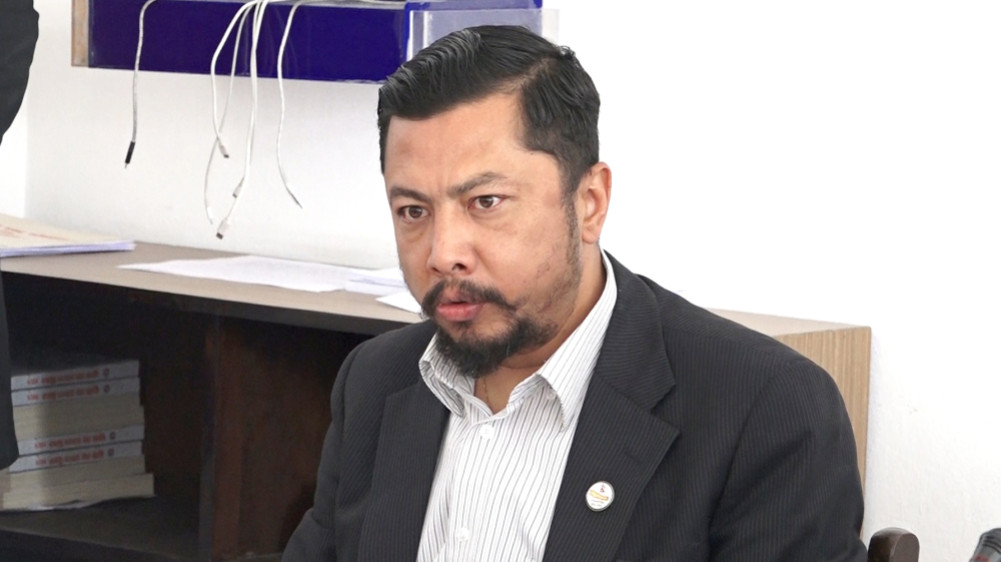The words of a mind-blowing man
We use Google Cloud Translation Services. Google requires we provide the following disclaimer relating to use of this service:
This service may contain translations powered by Google. Google disclaims all warranties related to the translations, expressed or implied, including any warranties of accuracy, reliability, and any implied warranties of merchantability, fitness for a particular purpose, and noninfringement.


Enthusiasm determinerschayadhirayat tattatkarma Pravantanat
Sangatyagatsato Vrte: Sangvirbhakti: Fame.



This verse of Shrimad Bhagavad Gita says that 6 things are necessary for success and fame - to be enthusiastic, to be determined, to be patient, to do whatever is necessary for your purpose, to do only that, to avoid bad people/powers. Do not associate and only associate with positive-right people. I don't know, the author of the book 'Why Nepal?' Ujjwal Thapa knew this verse or not, but these six topics were reflected in the behavior of the writer. While reading the book, the reader will feel these topics.
The book 'Why Nepal?' is a dictionary of Ujjwal Thapa's life. While reading this book written in English, at the end, a picture is formed in the reader's mind, yes, that person is Ujjwal Thapa. The book published by Yatra Publishing House
``Hwai Nepal?'' The first question that comes to mind is why its name is ``Hwai Nepal?'' Not only the book, Ujjwal Thapa's website also used to be called Hwai Nepal. It's the same now.
He wanted the idea to be more important than the person, so he wanted people to read the idea rather than his name. So much so that he made his articles and ideas on the website 'copy right free'. In a society where there is an uproar that even a status has been stolen, Thapa's understanding was counterintuitive. His understanding was the opposite or the current era is going the opposite way, this question makes the mind in many places in the book.
To spread any idea, three questions about that topic or idea ie 'Why? how? Thapa has shown in the beginning through a picture that it is important to be clear. The name of the book was named 'Why Nepal?' from that first question.
Ujjwal Thapa used to call himself a brainiac. Like his introduction to himself, this book is also a mind-blowing book. This book is not a biography of Thapa, nor is it a story of his glory. This book is a collection of some of Thapa's experiments, some introspection and some of our thoughts that challenge the status quo.
The book begins with the introduction and journey of Ujjwal Thapa. At the beginning he writes an episode of his 11th class. He is in the examination hall for the final examination of O Level (Class 11). The exam is English Literature. Thapa will not be well prepared for the exam. When he read the questions, he was afraid that he was going to fail.
He was interested in making cartoons. While working together, he used to make cartoons in the central committee of the party. At that time, in the exam hall, he would think - if he is going to fail, why fail so much, I will make cartoons in response to the questions, this failure is the same failure. He started answering the question through cartoons, making comics. Seeing that he started making pictures in this way, his friends will ask - what did he do? He writes, "Seeing me do this, my friends were more sorry for me than I was." Some friends even made fun of him. After some time the results are out from the Cambridge University Examination Board. He himself is surprised by his results. He has not only passed, he has scored good marks. He later found out that, inspired by this incident, some of his lower-class siblings also made similar paintings. They have failed.
It also makes sense for him to write a line at the end saying 'others have failed by doing the same'. He is always giving a message that others should not copy to be successful in the book. The first essay in the book is titled, 'My defeat resume'. He shows his defeats in the very first essay to a generation chasing after victory. The book begins with the story of his losing elections twice, the failures he faced in his ventures. While reading the book, it feels like eating organic healthy food in the era of fast food.
The title of the second essay is 'When you die, what will people write about you? How do people remember you?'' The essay begins with an imaginary eulogy. And, to the reader, he asks the question - do you want someone to write a similar letter when you die? Thapa finally said again 'Let's imagine, you die and hundreds of friends, family are gathering to celebrate your life as a celebration. What do you want them to talk about in that gathering?'' Thapa, who once went to become a monk, wrote this book about 2 years before he died of Corona. Anyone who knows him will get teary-eyed reading this essay. While reading the book, the reader is thinking about Thapa's deep spirituality.
Another of his essays shocks the reader again, 'Buddha was born in Nepal, and what happened?' He said that we Nepalese Buddha was born in Nepal, we are all proud of it, but does Buddha want to be born again in today's Nepal? asked the question. What is the Buddha thinking when he sees the Nepalis being silent when injustice is done? What did the Buddha do when he saw the young people leaving the country? Seeing Nepalis divided in the name of caste, religion, and party, the reader has asked long questions about what Buddha is doing.
Nepali politics and character of leadership, current state of entrepreneurship and future prospects are in the book. In the book, author Thapa has shown the scenes and events seen while traveling in the plains, mountains, and mountains from different angles.
author Thapa has expressed his views on why Nepal failed and how it can succeed. He has repeatedly asked one question - 'We Nepalis are successful individually, but why are we collectively unsuccessful?' He has termed the politics of the current parties as robbery. The book is full of questions. But, when we read the whole book, then we get the whole answer.
This book is equally important for young entrepreneurs. Ujjwal Thapa was an entrepreneur himself. In the book, Thapa has discussed 10 reasons why one should do business in Nepal. The aim of Thapa's politics was to create an entrepreneurial society. In an essay in the book, Thapa challenges young students to do these 12 things before they graduate from college. In another essay, Thapa asks the reader - 'You don't have to change yourself 100 percent or 50 percent or even 10 percent, can you change 1 percent?' He tells 15 things that Nepali people will change even if they change themselves a little.
He also shares his experiences through words on how to conduct campaigns in Nepal. Thapa is the founder president of Viveksheel Nepali Party. He started a new peaceful street movement in Nepal. He has also shown the power of the road in this book. What should a citizen of the 21st century be like, what should a leader be like? explained. He said in one line about leadership, 'Leadership is preparation'. At the end of the
book, he makes 30 predictions for the year 2030. Thapa, who made predictions about Nepal's democracy, constitution, politics, and enterprise, makes a joke that the last prediction will match the above predictions and portrays himself as a new seer of the future, but he refuses to take the title. The humorous style in his writings is what attracts the reader.
is another feature of the book, after each lesson, Thapa has given the reader some work, asked some questions, which keeps the reader's mind engaged. At the end of the book, there are cartoons drawn by Ujjwal Thapa. As Thapa lived his life, he left this book as a gift to us.
He didn't want the pomp and pageantry of a book release. Even though he died due to corona infection, he will live on through his thoughts and through this book.
प्रकाशित : चैत्र १०, २०८० ११:४३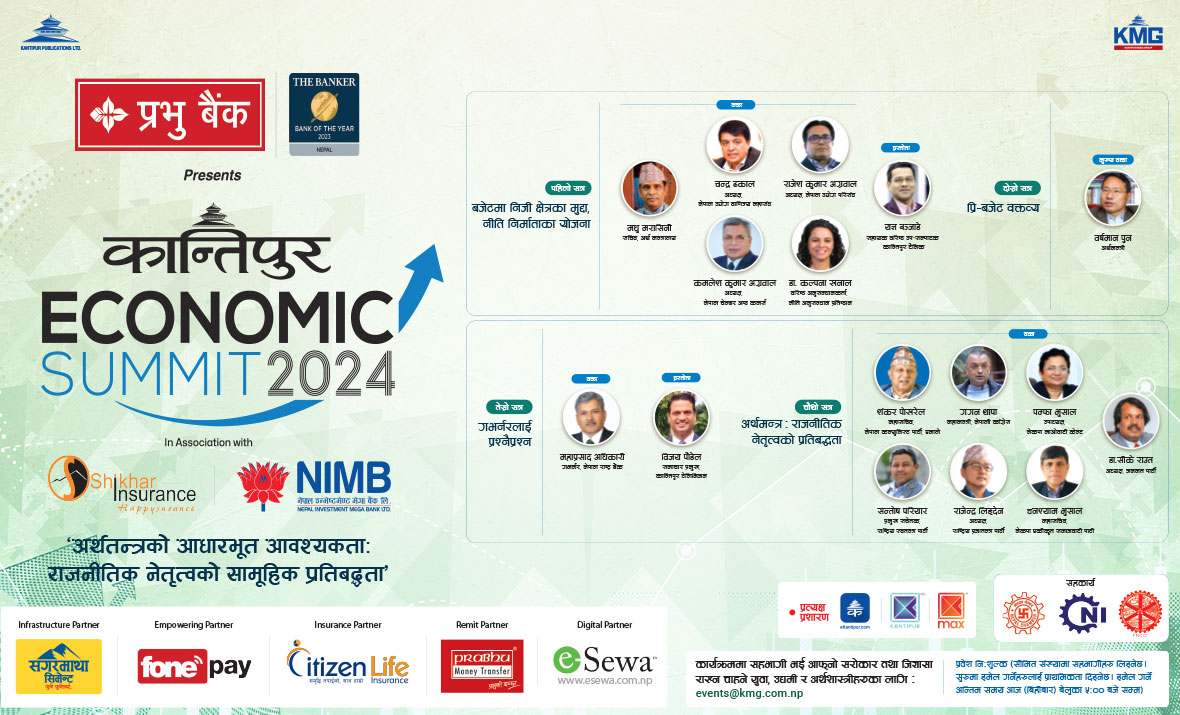

 २४.१२°C काठमाडौं
२४.१२°C काठमाडौं



